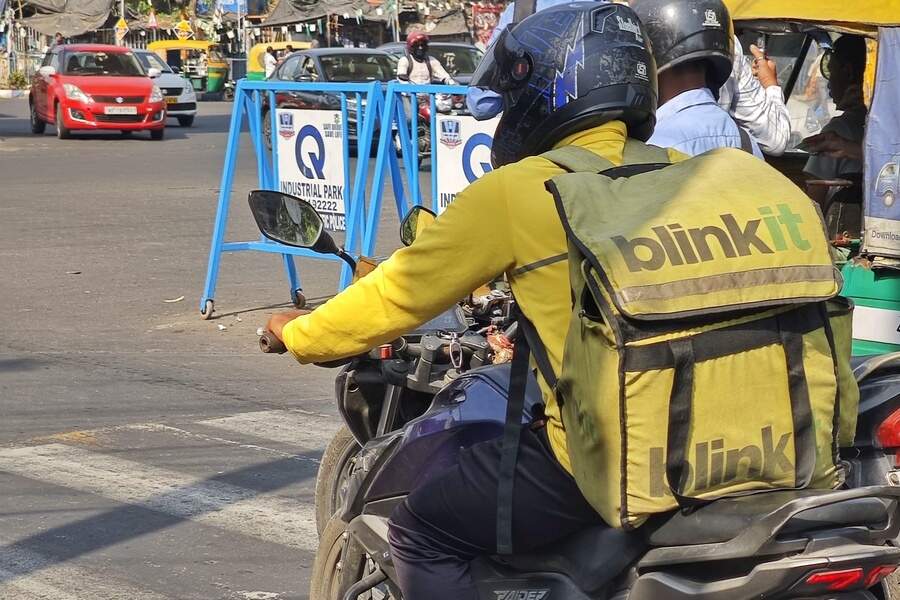Like most Kolkata neighbourhoods, mine also has a mudikhana dokan, from where all our daily grocery items are bought. A quick run to Naresh-er dokan to buy daily essentials used to be a regular affair in most households of the para. When I recently visited the shop, Naresh asked me, “Ajkal ar didi ke dekha jaye na. Ekhane thaken na?” (Don’t see you these days. Don’t you live here anymore?). Slowly hiding the Blinkit paper bag that had my lunch box, I responded, “Aar asha hoye na oto. (Yes, I don’t come often).”
This little interaction got me thinking about how Blinkit and other quick commerce services have changed how we shop daily. These services emerged during Covid to keep us safe at home, while we got essentials delivered to our doorsteps in minutes. Now, almost five years later, while we don’t face the same danger, Blinkit and other such services show no sign of slowing down.
But first, let’s rewind…
Blinkit, previously Grofers, was launched in 2013. Once you placed an order for your essentials on the app, Grofers would deliver your order in 90 minutes or the next day. Through the Covid lockdowns, the demand for having groceries and essentials home delivered, skyrocketed. In 2021, Grofers was rebranded as Blinkit and entered the quick commerce market with a promise to deliver your goods in a blink. Kitchen staples, meat and fish, beauty products and home essentials — you could have everything at your doorstep in less than 10 minutes sometimes. Soon, Swiggy (through Instamart), Big Basket and Zepto, adopted the same model.
Blinkit rapidly expanded its services and opened warehouses in every nook and corner of major cities. In 2022, Zomato acquired Blinkit for $568 million, providing financial backing and technological expertise. At present, Blinkit operates in 43 cities across India. The warehouses, now known as dark warehouses, only accessible to staff and delivery partners, cater to a short radius, making quick deliveries possible.
Thriving post the pandemic
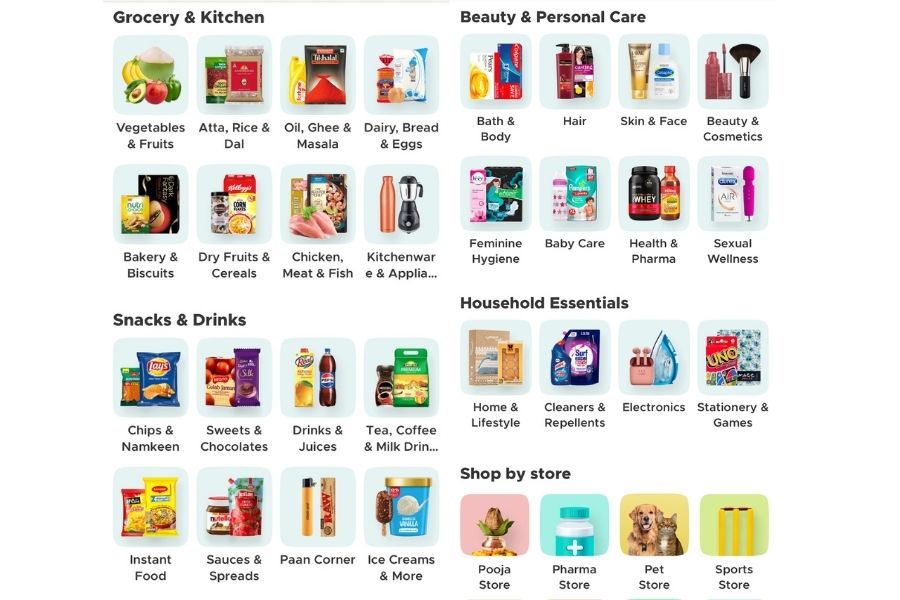
Alongside an impressive inventory of products, the app’s additional services help in their popularity
It is more than Bangali lyadh that is driving quick commerce apps in Kolkata and other cities. Blinkit has a delivery charge of Rs 15 and a nominal handling fee, and in exchange, delivers your orders in minutes. That aside, the dependency on Blinkit can be attributed to the varied products it has on its app along with additional services — like the Print Store. Upload your documents or photographs on the app, and the prints or photos will be delivered to you in a sealed packet in 15 minutes. Additionally an inventory of items that covers books, toys, pet supplies (including toys), kitchenware and appliances means that if you need a last-minute gift, you can have it delivered home in 15 minutes or less.
Are local shops losing business?
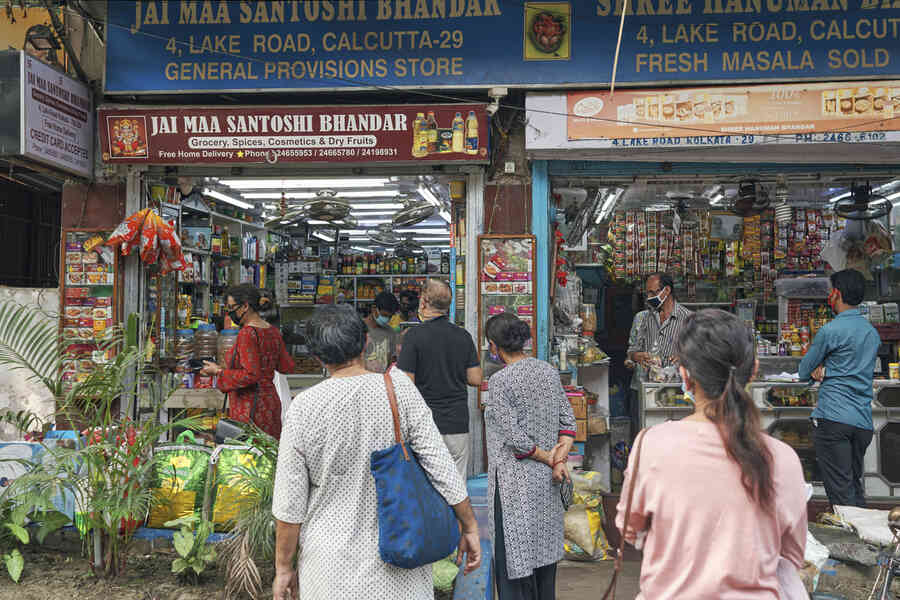
A large section of Kolkatans still rely on their local grocery store for their household essentials iStock
The answer is ‘not really’. A larger section of society in Kolkata still depends on local shops and the khata system at their regular mudikhana. Speaking to My Kolkata, Santosh Shaw, a shopkeeper in Behala, dismissed the notion that quick commerce apps have had an adverse effect on his business. “My father opened this shop and over the years he has built a good relationship with many families in the locality,” he said, adding, “We know exactly what each customer needs — what kind of rice, what brand of oil. Also, on these apps, you cannot buy things in small quantities. For example, people come and ask for 10-takar elach (cardamom worth Rs 10). Will your app give you that? You will at least need to buy a 50g pack.”
Also, brick-and-mortar stores are trumping quick commerce services in the sales of fresh produce like vegetables, fruits, fish and meat. The freshness of the kancha bajar remains a top priority for buyers. Frozen meat and fish is almost a taboo for Bengalis. A trip to the local market early in the morning is still a ritual that no app can replace.
Who is using apps like Blinkit?
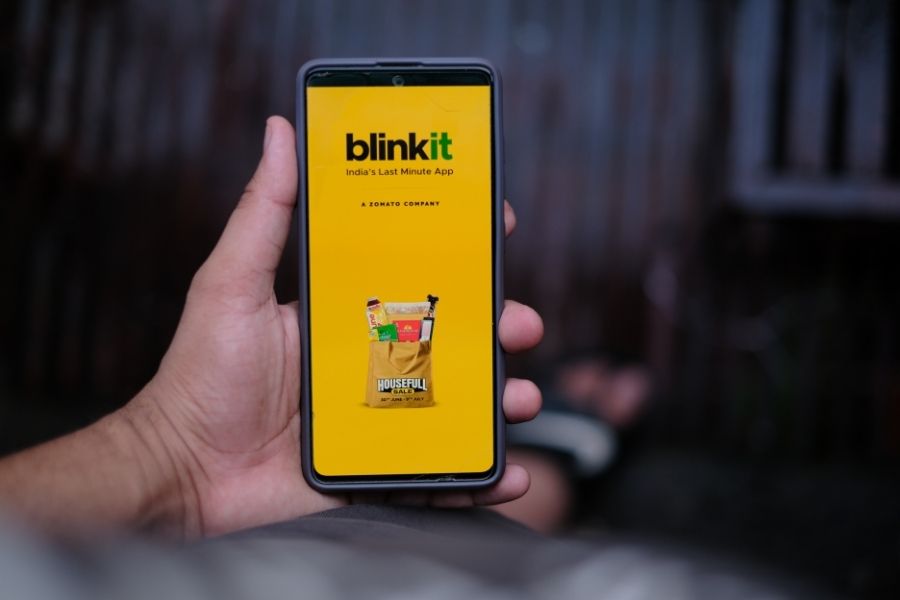
The younger generation of working professionals prefer the convenience of quick commerce apps Shutterstock
Speaking to users revealed a pattern — apps like Blinkit are being used to meet quick needs in households. A younger population, especially working professionals, find it helpful as they can shop for all their household needs in one place and get it delivered home, saving time.
North Kolkata resident Ankit Das, has access to two bazaars near his home, but chooses to shop for groceries on Blinkit. When asked why, he said, “I live alone and cook my own food. It is easier for me to buy exactly what I need before I start cooking, without having to go out or order from a restaurant. The bazaars are only there in the morning and early evening. I go to the office in a rush and return pretty late, and at the end of the week, I hardly have any energy left on Sundays for shopping and cooking.” Paul Mondal, a Kolkatan who now lives in the UK, misses these apps. For him, quick commerce is not just a convenience; it is a privilege that transforms everyday life. “Having lived in cities like Kolkata and Bangalore, I experienced the ease of services like Swiggy Instamart, Blinkit and BigBasket — where groceries and essentials arrive at your doorstep in minutes. Now, living in the UK, I deeply miss this luxury. The time and effort saved, the relief of not having to carry heavy grocery bags, and the added benefit of discounts make these services truly indispensable. Quick commerce is not just about speed; it’s about enhancing the quality of life,” he said.
A USA-based Indian professor said he set up Blinkit for his parents in India when he visited them, and now orders groceries for them via the app’s website. He cannot use a card, so opts for cash on delivery.
Where Blinkit wins brownie points
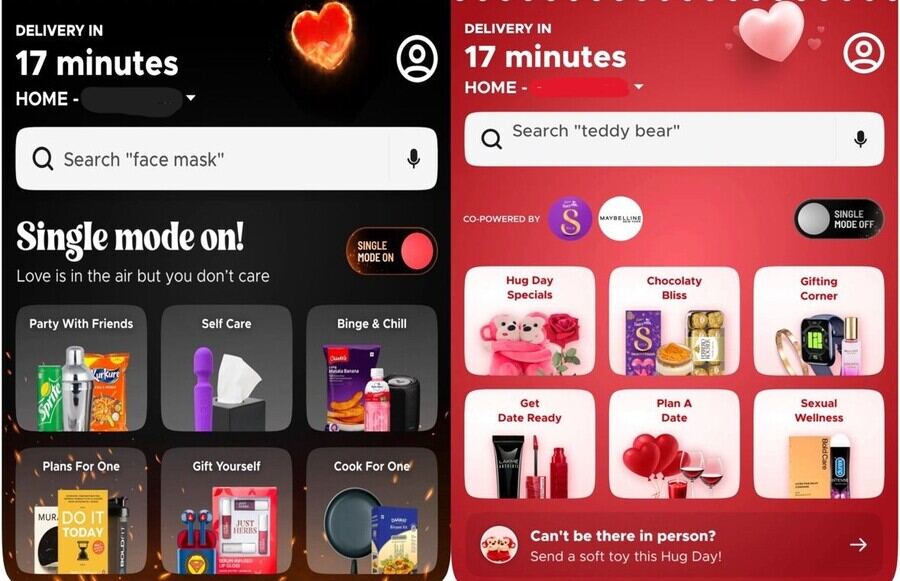
Blinkit wins the game in consumer experience with innovative in-app features
Blinkit wins the game when it comes to consumer experience. Not only do you have special festive sections for every occasion, you also get innovative features. For example, for Valentine’s Day, they introduced the ‘Single Mode’ feature. Once you turned it on, you would not see any Valentine’s Day special items, and instead get recommendations for self-care products.
They also excel at packaging. Not only do all packages come in paper bags, it is the bags themselves that are the USP featuring adorable graphics and games. For Valentine’s Day 2025, their paper bags were actually a template for a DIY gift bag. The outline drawings on the bags are also a great colouring activity sheet for kids and Blinkit has been promoting it on their social media as well.
How can Blinkit be better?
According to users, some improvements can help Blinkit provide much better customer service. In various parts of Kolkata, delivered vegetables and fruits have not been very fresh. The app also doesn’t replace disputed products, refunding the money instead, so if you reorder you will have to pay delivery charges again.
There have been complaints about printouts arriving late.In some cases, handling has been an issue as well with the printed papers being crinkled.
Another issue pointed out by many users has been the accumulation of large paper bags at home. Until a few months ago, even a small product would be delivered in a large paper bag. While these have now been replaced by smaller pinch bottom bags, having an option of bag-free delivery would help not only users, but the environment too.
